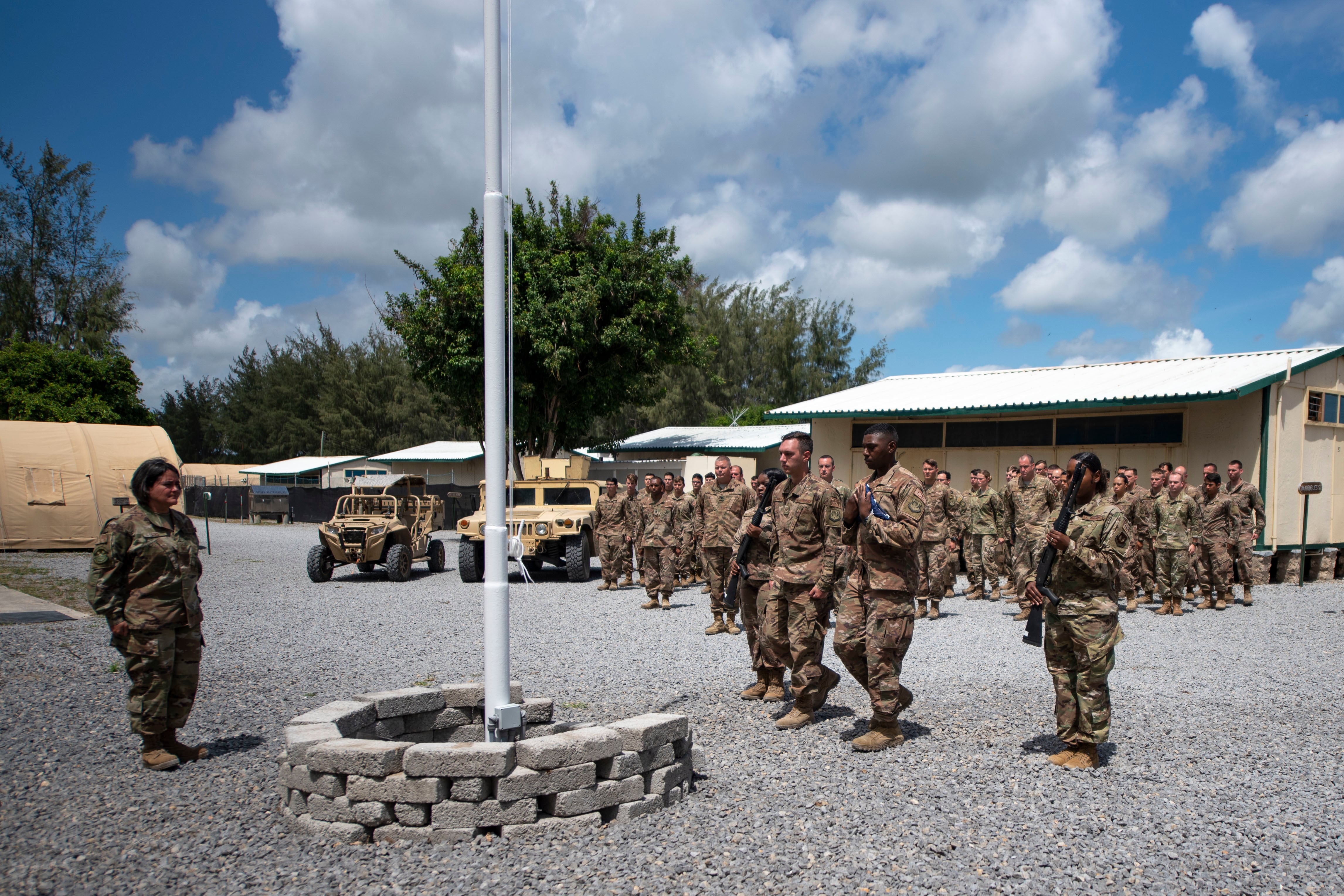A team of Marine Raiders led the response against al-Shabab militants who raided the Kenya Defense Force Military Base at Manda Bay, Kenya, in early January, killing three Americans, multiple sources told Marine Corps Times.
The Jan. 5 attack by al-Shabab on the base housing U.S. troops resulted in the death of one U.S. service member and two Department of Defense contractors. The East African terrorist group, which is affiliated with al-Qaida, also destroyed a number of contractor-operated civilian aircraft before the Marines arrived.
Multiple sources within the Marine Raider community told Marine Corps Times that about a dozen Marines from 3rd Marine Raider Battalion, based out of Camp Lejeune, North Carolina, led Kenyan commandos against the Islamic militants. The Marines engaged in an intense firefight with the al-Shabab militants, the sources said, ultimately pushing the Islamic fighters out of the military base.
“While numbers are still being verified, it is estimated that several dozen al-Shabaab fighters were repelled,” U.S. Africa Command said in a Thursday press release. “Because of the size of the Kenyan base, clearance and security operations continued for several more hours to ensure the entire base was secure.”
RELATED

At least one Marine Raider was injured in the fighting, two sources familiar with the operation told Marine Corps Times.
Marine Corps Times was unable to confirm the severity of the injuries.
Army Spc. Henry “Mitch” Mayfield Jr., 23, was identified as the soldier killed while supporting Operation Octave Shield, the name for the mission focused on targeting militant groups in Somalia, Army Times reported.
Dustin Harrison, 47, and Bruce Triplett, 64, pilots and contractors with L3 Technologies, were also killed.
The New York Times first reported Wednesday that Marine Raiders participated in the counterattack.
The Marines were located at Camp Simba, the Times reported ― roughly a mile from the airfield at Manda Bay where the attack took place. The Times initially reported that the Marines’ response was delayed due to their distance from the base, but on Thursday U.S. Africa Command said that the Marines’ response was “timely.”
“The tragic loss of these brave Americans and the damage and destruction to aircraft demonstrates the enemy achieved a degree of success in its attack,” the press release said. “However, despite public reports, an initial assessment indicates that a timely and effective response to the attack reduced the number of casualties and eliminated the potential for further damage.”
Al-Shabab primarily operates inside of Somalia, but also has carried out attacks across East Africa.
Following the attack, the terrorist organization warned African forces that the U.S. will abandon them when the fighting gets hard and nothing will save them from the “wrath of the Mujahideen.”
Troops from U.S. Africa Command’s East Africa Response Force were sent to Manda Bay in Kenya to reinforce the base and provide extra security, Military Times previously reported.
“The attack at Manda Bay demonstrates that al-Shabaab remains a dangerous and capable enemy,” U.S. Army Gen. Stephen Townsend, U.S. Africa Command commander, said in the press release. “They are a menace to the people of East Africa and U.S. national interests there and their sights are set on eventually attacking the U.S. homeland. It is important that we continue to pursue al-Shabaab and prevent their vision from becoming a reality.”
Following the attack the U.S. Africa Command launched a senior-leader-led investigation into the incident, according to the press release.
“The full findings of the investigation will be released following family and Department of Defense notification,” the command said.
This story was updated Thursday to include U.S. Africa Command’s response and investigation, and pushback on the Times’ report that the Marines were delayed in their response.
Shawn Snow is the senior reporter for Marine Corps Times and a Marine Corps veteran.





